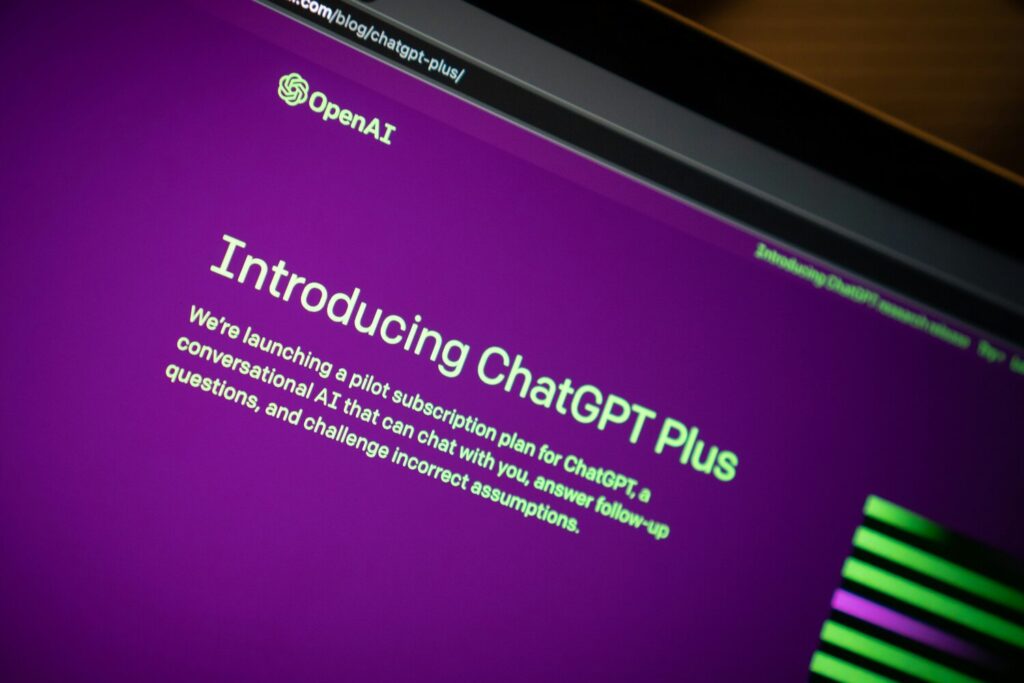
Posted on 18th August 2023 by Phil Brown
Recruiting is a complex and time-consuming task that requires a lot of effort and resources. Fortunately, ChatGPT can help streamline the process and make it more efficient and effective. This blog post explores five ways ChatGPT can help with recruitment tasks, from automating initial screenings to providing data-driven insights.
By leveraging the power of artificial intelligence, ChatGPT can help you reduce time to hire, lower recruitment costs, and increase candidate engagement. Read on to find out more about how ChatGPT can help your recruitment efforts.
Use ChatGPT to summarise CVs and covering letters
Recruiters are often bombarded with numerous CVs and covering letters, making it a daunting task to sift through all the information and identify the most relevant details. This is where ChatGPT can be a game-changer. With its natural language processing capabilities, ChatGPT can quickly analyse and summarise CVs and covering letters, saving recruiters precious time and effort.
Imagine being able to feed ChatGPT a pile of CVs and instantly receive concise summaries that highlight the key skills, qualifications, and experience of each candidate. This not only streamlines the screening process but also allows recruiters to focus on the most promising candidates.
Additionally, ChatGPT can identify any standout achievements or unique qualities mentioned in covering letters, providing recruiters with valuable insights into a candidate’s motivations and aspirations.
By utilising ChatGPT to summarise CVs and covering letters, recruiters can efficiently evaluate candidates, shortlist the most suitable ones, and ensure that no promising applicant goes unnoticed. This powerful tool enables recruiters to make more informed decisions and ultimately build a stronger workforce.
Use ChatGPT to write unsuccessful application responses
Recruiting is not just about finding the right candidates, but also about providing a positive candidate experience. However, it can be time-consuming and emotionally draining to respond to every unsuccessful application. This is where ChatGPT can come to the rescue.
By utilising ChatGPT, recruiters can automate the process of writing unsuccessful application responses. Instead of spending hours crafting personalised emails, ChatGPT can generate well-written and empathetic rejection messages. With its natural language processing capabilities, ChatGPT can understand the context of the application and provide a thoughtful and considerate response.
Not only does this save recruiters time and energy, but it also ensures that candidates receive a prompt and respectful communication. ChatGPT can help maintain a positive employer brand and improve candidate experience, even for those who didn’t make the cut.
Remember, it’s important to provide clear and concise feedback while also offering encouragement and appreciation for the candidate’s time and effort. With ChatGPT, you can streamline the process of writing unsuccessful application responses, leaving more time for other important recruitment tasks.
Use ChatGPT to generate relevant interview questions
Recruiting top talent involves conducting thorough interviews to assess a candidate’s skills, experience, and cultural fit. However, coming up with relevant and insightful interview questions can be challenging. This is where ChatGPT can be a valuable resource. With its ability to understand and generate natural language, ChatGPT can assist recruiters in generating relevant interview questions tailored to specific roles and qualifications.
By inputting job descriptions, required skills, and desired qualifications into ChatGPT, recruiters can receive a list of well-crafted questions designed to uncover a candidate’s suitability for the position. ChatGPT can even provide suggestions for behavioral, technical, and situational questions that evaluate a candidate’s problem-solving abilities, teamwork skills, and decision-making processes.
Using ChatGPT to generate interview questions not only saves recruiters time but also ensures a comprehensive evaluation of candidates. It enables recruiters to assess candidates consistently and effectively, making the interview process more structured and efficient. With the assistance of ChatGPT, recruiters can conduct interviews confidently and identify the most promising candidates for the role.
Use ChatGPT to write your sales emails
Sales emails are a critical tool for engaging potential clients and driving business growth. However, crafting persuasive and personalised emails can be a time-consuming task. This is where ChatGPT can come to your rescue. By leveraging the power of artificial intelligence, ChatGPT can help you write compelling sales emails that capture attention and generate responses.
With its natural language processing capabilities, ChatGPT can analyse customer data, understand their preferences, and generate customised sales email content. Whether you need to follow up on leads, nurture relationships, or pitch new products, ChatGPT can provide you with well-crafted email templates tailored to each prospect.
By using ChatGPT to write your sales emails, you can save time and effort, ensuring that each message is targeted and impactful. ChatGPT’s ability to generate engaging content and incorporate key sales techniques can help you increase open rates, boost conversions, and ultimately close more deals.
Don’t let the daunting task of writing sales emails hold you back. Embrace the power of ChatGPT and watch your email outreach become more efficient and effective.
Use ChatGPT to build your client target lists
Are you struggling to identify potential clients for your business? ChatGPT can be your secret weapon in building client target lists. With its AI-powered capabilities, and the right plugins, like AIRPRM, ChatGPT can analyze data and provide valuable insights to help you find and connect with the right clients.
By inputting criteria such as industry, company size, and location, ChatGPT can generate a list of potential clients that align with your target market. It can even provide additional information such as contact details, social media profiles, and recent news about the companies.
Building client target lists can be a time-consuming task, but with ChatGPT, you can save precious hours and focus on what matters most – building relationships and growing your business. Utilize the power of artificial intelligence to streamline your client acquisition process and increase your chances of success.
Don’t waste time on guesswork when it comes to finding the right clients. Let ChatGPT do the heavy lifting for you and watch your client base expand effortlessly.
Remember the limits
While ChatGPT is a powerful tool that can greatly assist with recruitment tasks, it’s important to remember its limitations. As advanced as artificial intelligence is, ChatGPT is still an AI language model and not a human recruiter. It should be used as a supplement to the recruitment process rather than a replacement for human judgment and intuition.
ChatGPT may not always fully understand the context or nuances of a specific job requirement or candidate’s background. It’s essential for recruiters to review and validate the information generated by ChatGPT. While ChatGPT can help automate certain tasks and provide insights, the final decisions should always be made by human recruiters who can consider the broader context and exercise their professional judgment.
Additionally, it’s crucial to be mindful of potential biases in AI models. ChatGPT learns from the data it is trained on, which can inadvertently introduce biases present in that data. It’s essential to be aware of these biases and mitigate their impact during the recruitment process.
By keeping these limitations in mind and using ChatGPT as a tool rather than a replacement, recruiters can harness its power effectively and ensure a more efficient and effective recruitment process.



